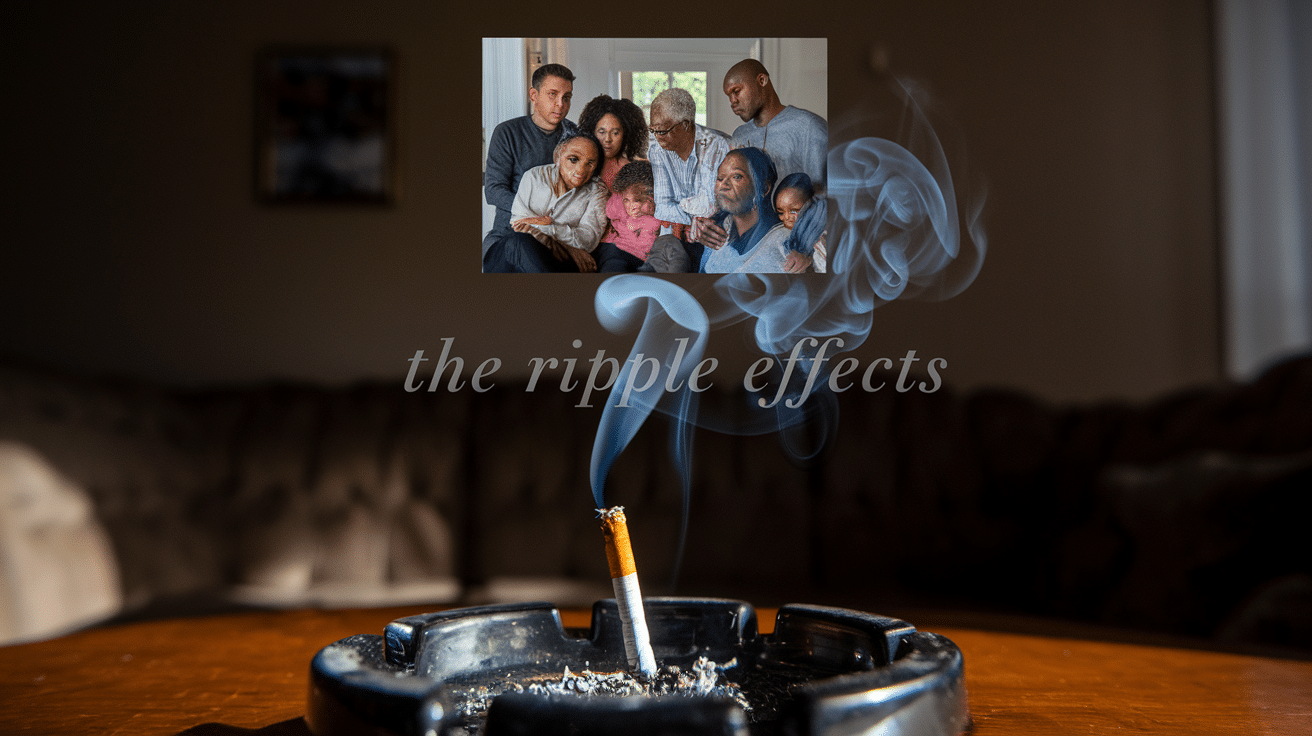Ever wonder how your neighbor’s smoking habit affects your rent? Or why your taxes keep rising despite you never touching a cigarette? It’s not just their lungs at stake.
The hidden costs of tobacco use ripple through society with shocking reach. From healthcare burdens to environmental damage, the impacts of smoking and tobacco use extend far beyond personal health choices.
Think about it: When someone lights up, we all pay—through insurance premiums, public healthcare costs, and even reduced workplace productivity. This interconnected web of tobacco’s societal impact affects every taxpayer and citizen.
But here’s what’s really mind-blowing: the financial toll is just the beginning. What happens when we calculate the human cost beyond dollars and cents?
The Many Ways Addiction Affects The Family
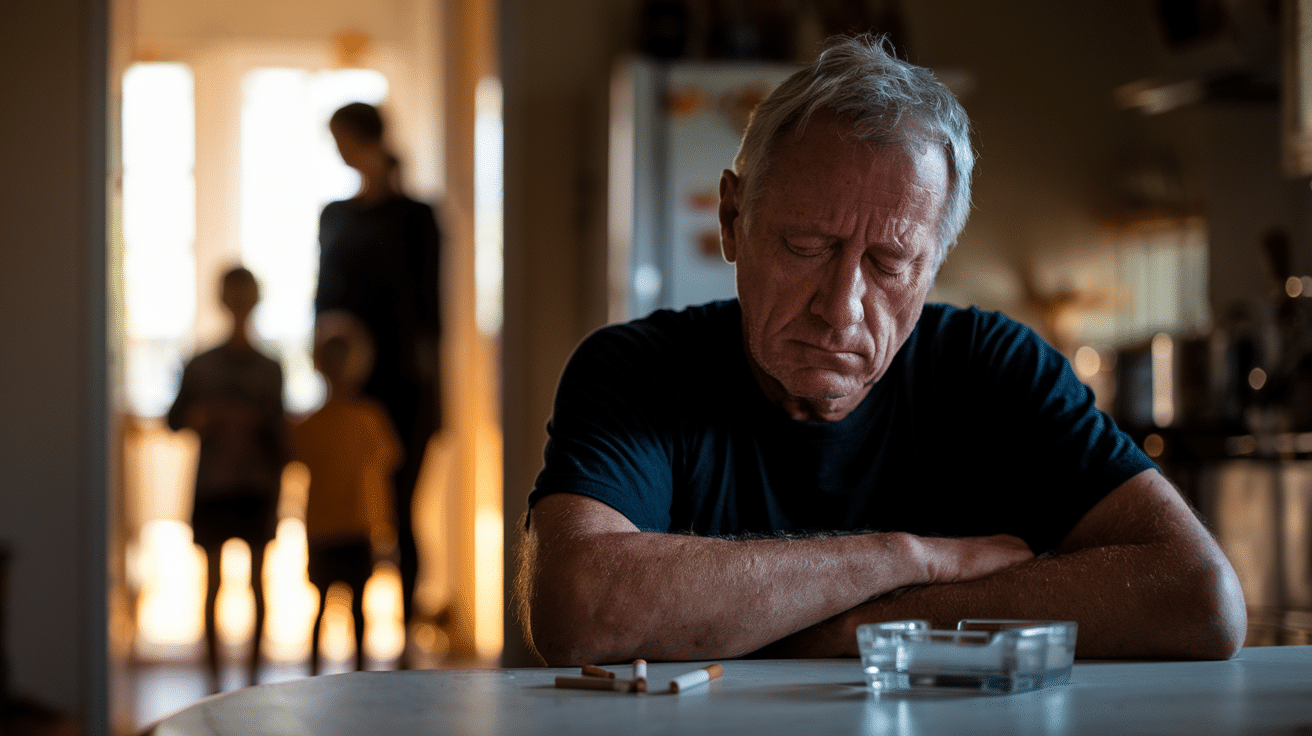
Financial Strain
Tobacco addiction isn’t just a health issue—it’s a money pit. A pack-a-day smoker burns through $2,000+ yearly on cigarettes alone. That’s a family vacation, gone. Emergency savings, gone. Kids’ college fund, shrinking fast.
And those are just the direct costs. What about when health problems kick in? Co-pays and deductibles add up. Insurance premiums skyrocket. Someone might need to cut back work hours for treatments.
Then there’s the long-term financial fallout. Life insurance? Way more expensive for smokers. Home insurance? Also higher, since smoking increases fire risk. And let’s not even talk about the property damage—from burn holes in furniture to that unmistakable smoke smell that tanks resale value.
Emotional Burden
When someone’s addicted to tobacco, everyone walks on eggshells. Kids learn to recognize the signs: that irritability when Dad needs a smoke, that distant look when Mom’s craving hits.
The guilt is real too. The smoker knows they’re hurting themselves, hurting their family, setting a bad example. But addiction doesn’t care about good intentions.
And fear? It’s constant. Every cough makes family members wonder: “Is this the beginning of something serious?” Every chest pain triggers panic: “Is this it?”
Broken Trust
Promise after promise gets broken. “I’ll quit after the holidays.” “This pack is my last one.” “I’m cutting back, I swear.”
Each broken promise chips away at family trust. Children especially don’t understand why a parent chooses cigarettes over their health, over being there for soccer games and graduations and, someday, grandchildren.
How Addiction Impacts Young Children
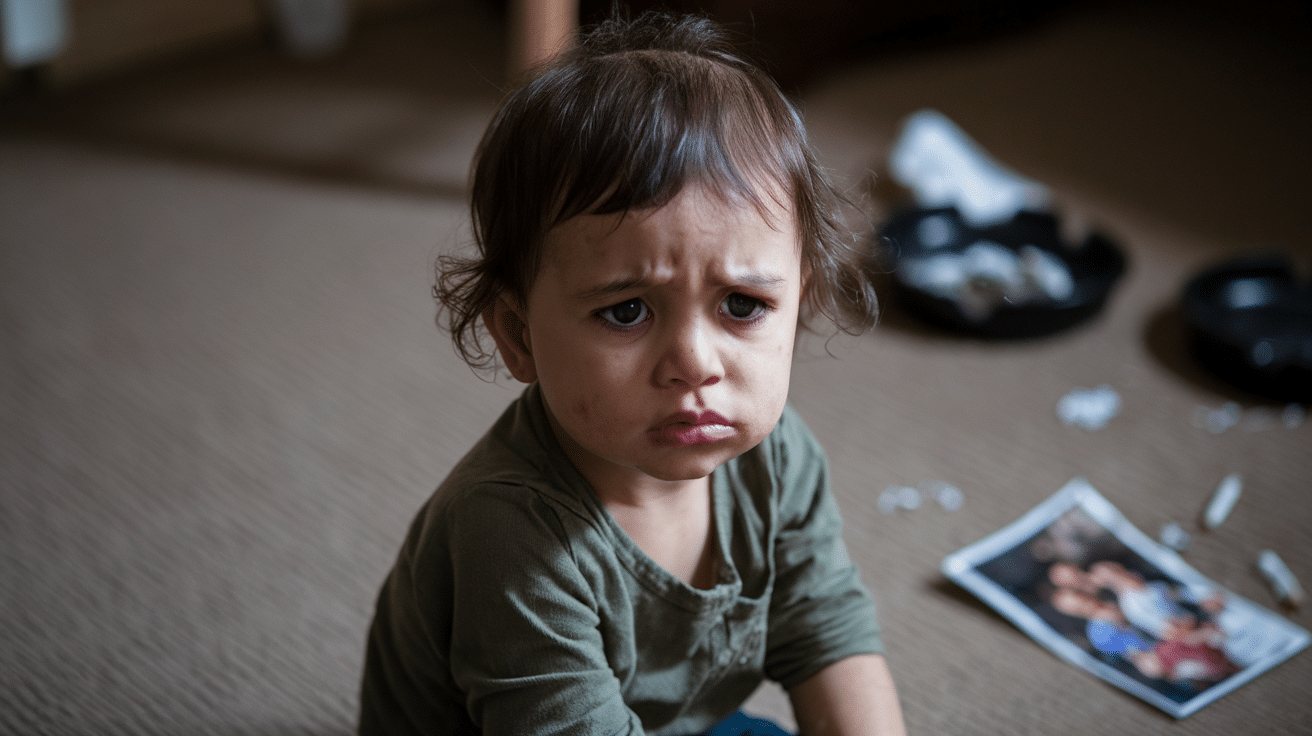
Kids deserve better than secondhand smoke and absent parents. That’s the brutal truth about tobacco addiction’s impact on the youngest members of our families.
When a parent smokes, their children become unwilling participants in their habit. Every puff creates invisible chains affecting these little ones in ways most smokers don’t fully grasp.
Physical Health Consequences
Children living with smokers breathe in thousands of toxic chemicals daily. Their developing lungs can’t filter these poisons, making them more susceptible to:
- Severe asthma attacks
- Frequent ear infections
- Bronchitis and pneumonia
- Sudden Infant Death Syndrome
- Reduced lung function that can last a lifetime
A child with a smoking parent will visit emergency rooms more often than their peers. They miss more school days. They struggle to keep up in physical activities.
Emotional and Developmental Impact
The damage goes beyond physical health. Addiction steals precious time and emotional presence from parents. Kids notice when:
- Dad steps outside every hour for a smoke break during family movie night
- Mom is irritable between cigarettes
- Money for activities disappears into cigarette cartons
- Parents choose smoking over being fully present
Children of smokers often develop anxiety about their parents’ health. They worry. They plead. They feel powerless watching someone they love slowly harm themselves.
Some kids even face social stigma – the embarrassment of clothes that smell like smoke or parents who can’t stop coughing at school events.
Teenage Addiction Affects The Family
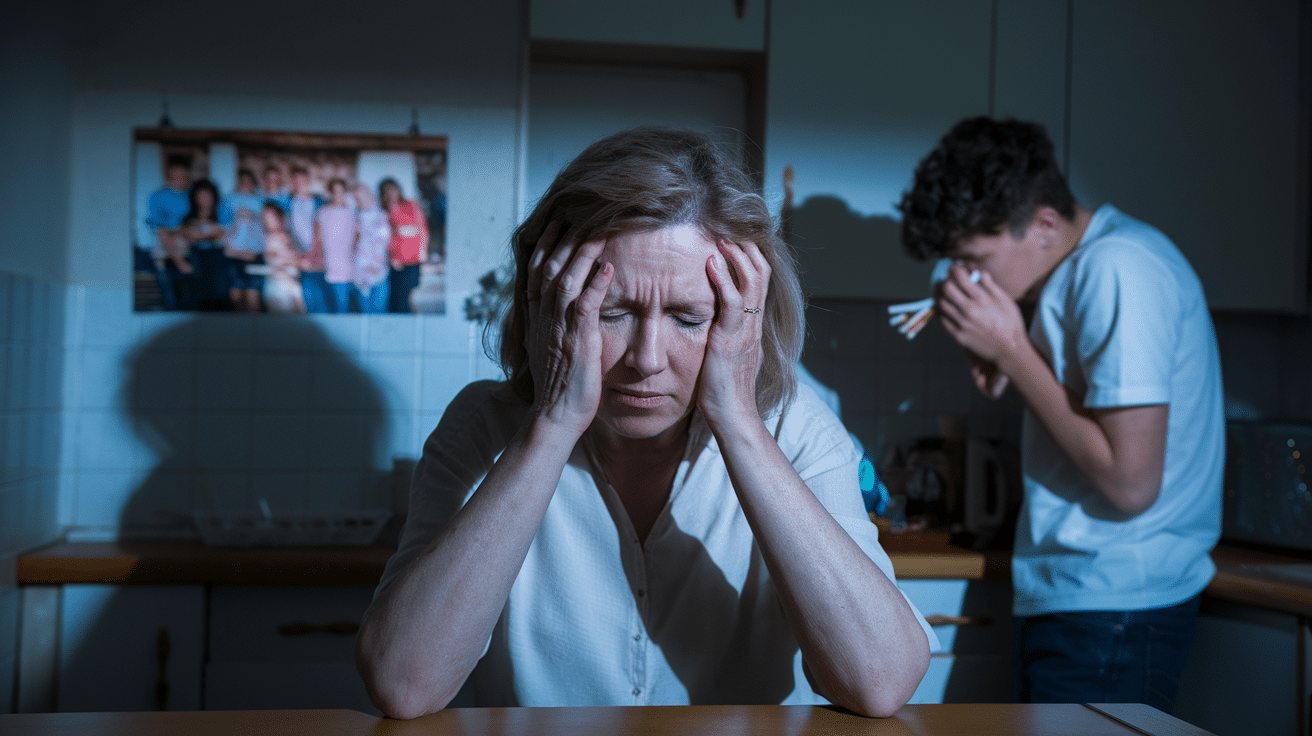
When a teenager gets hooked on tobacco, it’s not just their own health at stake. The entire family gets pulled into the chaos.
Think about the parents. They’re suddenly thrust into detective mode – checking backpacks, sniffing for smoke, monitoring social media, and wondering where they went wrong. The stress is overwhelming.
Siblings don’t escape the fallout either. Younger siblings might see smoking as “normal” and follow the same destructive path. Older siblings often feel responsible, wondering if they should have been better role models.
Then there’s the financial strain. Cigarettes aren’t cheap – that’s money that could’ve gone toward family vacations, college funds, or just keeping the lights on. Plus, medical bills start piling up as health problems emerge.
Trust gets shattered too. When teens hide their smoking, lie about where they’ve been, or steal money for cigarettes, it creates deep cracks in family relationships that can take years to repair.
Family routines get disrupted. Maybe everyone used to enjoy outdoor activities together, but now one member can’t keep up because they’re short of breath. Or perhaps family dinners become battlegrounds about the smoking habit.
The emotional toll is perhaps the heaviest burden. Parents experience guilt, siblings feel neglected as attention shifts to the “problem child,” and everyone lives with constant worry about long-term health consequences.
One teenager’s decision to smoke creates ripples that touch every single person who loves them.
College Addiction Affects The Family
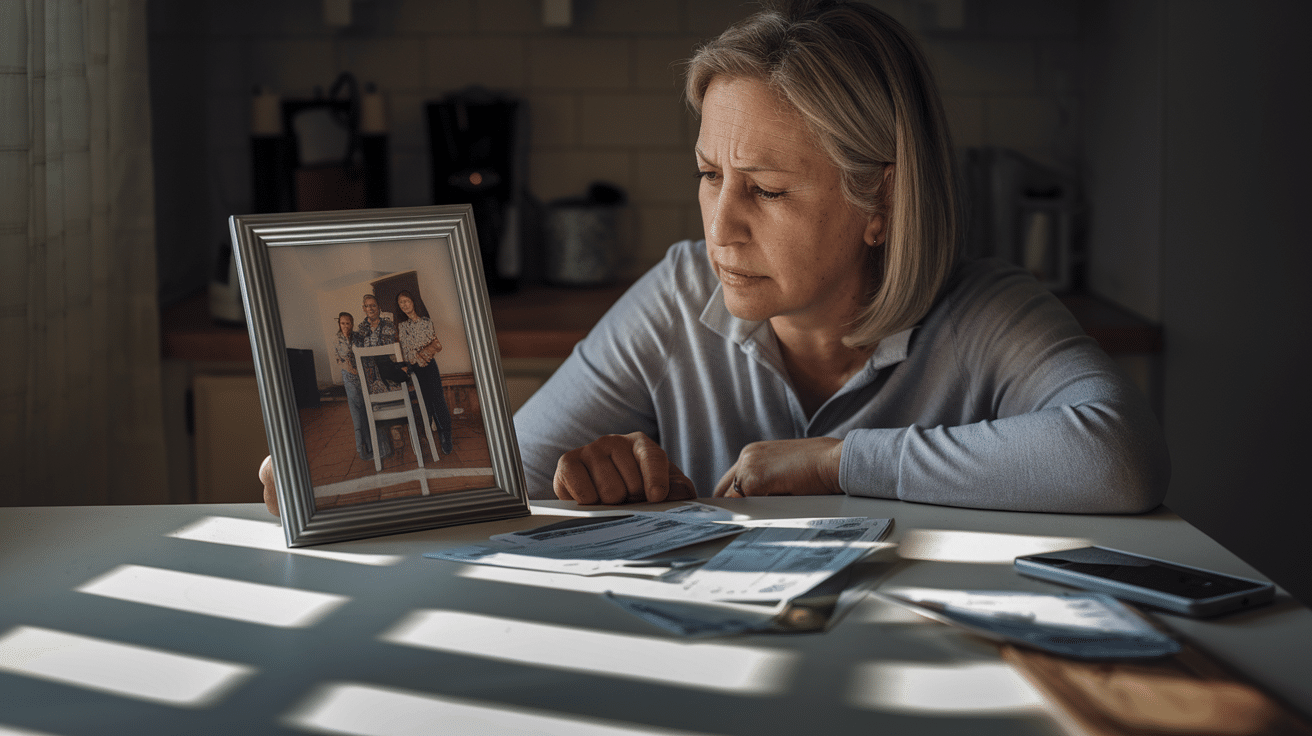
When tobacco addiction enters a college student’s life, it doesn’t just affect them—it hits their entire family like a tidal wave.
Parents who’ve sacrificed for years to give their kid a shot at higher education suddenly face a new worry. They’re not just concerned about grades and career prospects anymore. Now they’re up at night wondering if their child is developing a lifelong dependency that will hurt their health, finances, and future.
Think about the financial strain. College is already expensive enough. Add the cost of a pack-a-day habit to that bill. That’s money that could go toward textbooks, food, or rent—instead it’s literally going up in smoke.
But the real pain is emotional. Siblings watch their brother or sister change. Maybe they visit campus and hardly recognize the person who left home just months earlier. The family dynamic shifts as everyone tiptoes around the issue.
Communication breaks down. The student might avoid calls home, knowing they’ll have to hide their habit or face disappointment. Parents sense something’s wrong but feel powerless to help from a distance.
Holiday breaks that should be joyful reunions become tense standoffs. The smell of smoke on clothes, the frequent disappearances for a “quick break,” the irritability from nicotine withdrawal—these small things create big rifts.
And let’s not forget the long-term worry. Every family member knows the health statistics. They’re left wondering if their loved one’s college experience will lead to serious health problems down the road.
Re-Establishing Connections

Breaking free from tobacco addiction isn’t just about health – it’s about rebuilding the relationships that may have suffered along the way. When someone quits smoking, they’re not just healing their lungs; they’re opening doors to reconnect with the people who matter most.
Rebuilding Family Bonds
Ever notice how smokers often step away from family gatherings to light up? Those five-minute breaks add up to hours of missed conversations and memories. When you quit, you’re fully present for those precious moments with your kids, parents, or partners.
A former smoker named Mike told me: “I didn’t realize how much I was missing until I quit. My daughter stopped asking me to play because she knew I’d pause halfway through for a smoke break. Now we build entire LEGO cities without interruption.”
Finding Your Tribe Again
Smoking can isolate you from non-smoking friends. Those dinner conversations cut short, those invitations declined because smoking wasn’t allowed – they create distance.
The beautiful thing about quitting? Those non-smoking friends who gradually drifted away often come back into your life. And they’re usually thrilled to support your journey.
Workplace Connections
Your professional relationships improve too. No more being “that colleague who always smells like smoke” or missing important moments during smoke breaks.
When you quit, you might find yourself:
- Joining lunch conversations instead of rushing outside
- Building stronger professional networks
- Being seen as more reliable and present by management
Reconnection isn’t automatic – it takes effort. But with each tobacco-free day, you’re offering the people in your life your full, undivided attention. And that’s something no cigarette can ever provide.

Tobacco use extends far beyond the individual, creating a web of consequences that impacts families and society at large. From young children exposed to secondhand smoke and unhealthy role modeling to teenagers and college students developing dependencies that strain family relationships, the ripple effects are significant and far-reaching. Addiction disrupts family dynamics, creates financial hardships, and can permanently damage the trust between loved ones.
Recovery and healing are possible through reconnection and rebuilding. Families affected by tobacco addiction can work toward re-establishing healthy communication patterns and support systems. If you or someone you know is struggling with tobacco addiction, remember that seeking help isn’t just a personal choice—it’s a decision that positively impacts everyone in your circle and contributes to a healthier society overall.
